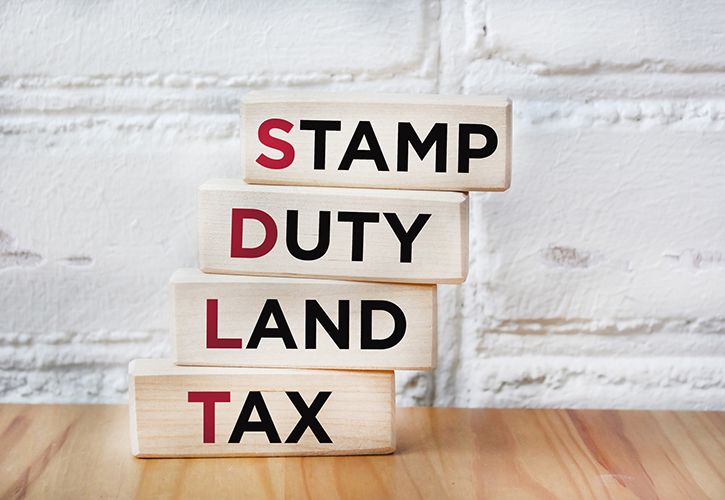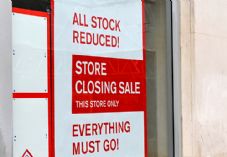UK DIY News
Stamp Duty Receipts Dropped By A Quarter In Year To March

- Stamp Duty receipts plummet by a quarter as pressure mounts on Chancellor to reform tax
- The 24% drop in revenue reflects a significant drop in home transactions over the last 12 months
- David Hannah, Group Chairman of Cornerstone Tax, mandates how the next government can get Britain buying again
Fresh data from UK Finance has found that Stamp Duty receipts fell by 24% to £11.6bn in the year to March 2024, with experts citing the ongoing affordability crisis and sky-high mortgages as principle factors behind the collapse in transactions. The collapse in demand for housing has led to a forecast decline in house prices over the course of the year, with Halifax anticipating a decline of 2-4% by the end of 2024. According to David Hannah, Group Chairman of Cornerstone Tax, the UK’s leading property tax consultancy, the next government ought to address the following three policy areas in order to kickstart the housing market, encouraging prospective buyers and easing the mortgage burden.
Stamp Duty
According to David Hannah, reforms to Stamp Duty thresholds as opposed to looking at rate cuts would be essential in getting the bottom end of the housing market moving in the long-term. Raising the threshold would have the benefit of taking more properties outside the scope of stamp duty, cutting the cost of acquisition for people looking to get onto the property ladder.
A scrapping of the second-home surcharge would also grease the wheels of the private rental sector, encouraging buy-to-let landlords to expand their portfolios and provide renters with a greater range of options.
David Hannah comments:
“SDLT payment bands have been long overdue for an overhaul as they have never been index-linked to house price inflation. An increase to these thresholds would stimulate activity at the lower end of the property market and allow first-time buyers to reduce the amount they need to borrow, thus improving their affordability calculations.
“As we all know, a rising tide lifts all boats, those looking to purchase properties on the mid-to-high end of the property market will now have a chance to sell their low-end properties as a result of the increase in demand from prospective buyers, contributing to further momentum within the housing market.”
Interest Rates
The BoE’s recent decision to continue holding interest rates at 5.25% points to a politics of inaction within the monetary policy committee. In the six months following the BoE’s initial decision to pause hikes to the base rate, the mortgage market has witnessed a small-scale price war which saw the average rate for a two-year fixed drop to 5.76% from a peak of 6.86% in July 2023.
However, with the latest inflation figures from the ONS reporting that the rate of price increases has fallen below 3.2% for the first time in two years – David Hannah asserts that the BoE ought to look towards cutting the base rate before the end of the year, in a bid to prevent a collapse in consumer demand and encourage lenders to pursue further cuts to mortgage rates.
David Hannah comments:
“March’s inflation figures and mortgage approvals should indicate an overall cooling off of the UK economy which, if we are to avoid a recession next year, must be acknowledged by the BoE and, in an effort to avoid a sudden crash of inflation, will increase pressure on the MPC to start reducing interest rates sooner rather than later.
“Economies have momentum, with the rate of inflation continuing its downward trajectory towards the BoE’s threshold of 2% - the MPC must look ahead to the new year and start thinking about the optimum time to cut rates. Recent forecasts from Halifax have predicted that housing prices are tipped to continue falling by the end of the new year, implying that prospective buyers will still be put off by high mortgage rates. I’d urge the MPC to seriously consider cutting the interest rate in their next meeting, even a reduction by a quarter percentage point would signal optimism within the UK economy, with a target base rate of 3-3.5% being the overall goal if the BoE want to truly prioritise prospective buyers in the new year."
Supply Challenges
The confluence of restrictive fiscal and monetary policy from the government and the BoE has been the unprecedented collapse in the supply of rental stock, with an investigation by the BBC earlier in the year revealing that the supply of rental homes in the UK had fallen by one-third in the past two years.
Cutting the interest rate and reducing the tax burden on homes at the lower-end of the market will provide much-needed relief to both buy-to-let landlords and prospective buyers alike. Moreover, the provision of liquidity support for the construction industry would enable the sector to build speculatively and rapidly spur on the necessary increase to the housing stock.
David Hannah comments:
“It would make sense for the chancellor to suspend, or even abolish, the 3% surcharge where properties are being acquired for private rental sector investment. Removing this measure would encourage landlords to increase their holdings, rather than exit the market – reversing the decline in supply of rental homes and potentially expand it to the point where demand no longer outstrips supply.”
Source : David Hannah, Chairman, Cornerstone Tax
Image : Sviatlana Zyhmantovich / iStock / 1699081966
Thank you for the excellent presentation that you gave at Woodbury Park on Thursday morning. It was very interesting and thought-provoking for our Retail members. The feedback has been excellent.











































